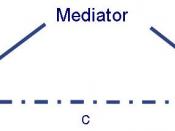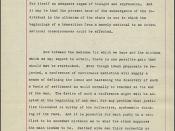When the parties to a conflict are unable to come to a resolution by themselves, the intervention of a third party is a possible means of breaking the deadlock and producing and acceptable solution. Mediators can play different roles. They can serve as hosts, observers, facilitators, formulators, educators, manipulators, or advocates. Mediators might be chosen for their reputation, skills, knowledge or resources. Mediators have their own motivations for participating in the negotiation process and sometimes come with their own agenda. Despite their biases, it is generally believed that mediators should be neutral to any of the conflicting parties. Their participation as intermediaries is based on the trust of all the conflicting parties. A mediator's participation can be terminated at any point during the negotiation process. Douglas E. Noll presents four pillars of mediation theory. I will not concentrate on the article itself simply because everyone has an opinion and theory of mediation.
What I will focus on is conflict goals, levels of conflict escalation, mediation styles and finally outcomes of mediation.
Goal ambiguity is also a problem for third parties who enter a conflict to "help." If they do not understand what their own goals are for involvement, they can easily do more harm than good. Third party intermediaries must clearly understand what the parties want them to do, what they themselves want to do, and how both of these goals relate to what is actually possible. While the third party's goals also may change over time, if they see that their initial goal to help the parties deal with the conflict more effectively cannot be achieved, they should be sure to withdraw from the conflict before they do more harm than good. One of the factors that contribute to such confusion is that goals change over time as...


